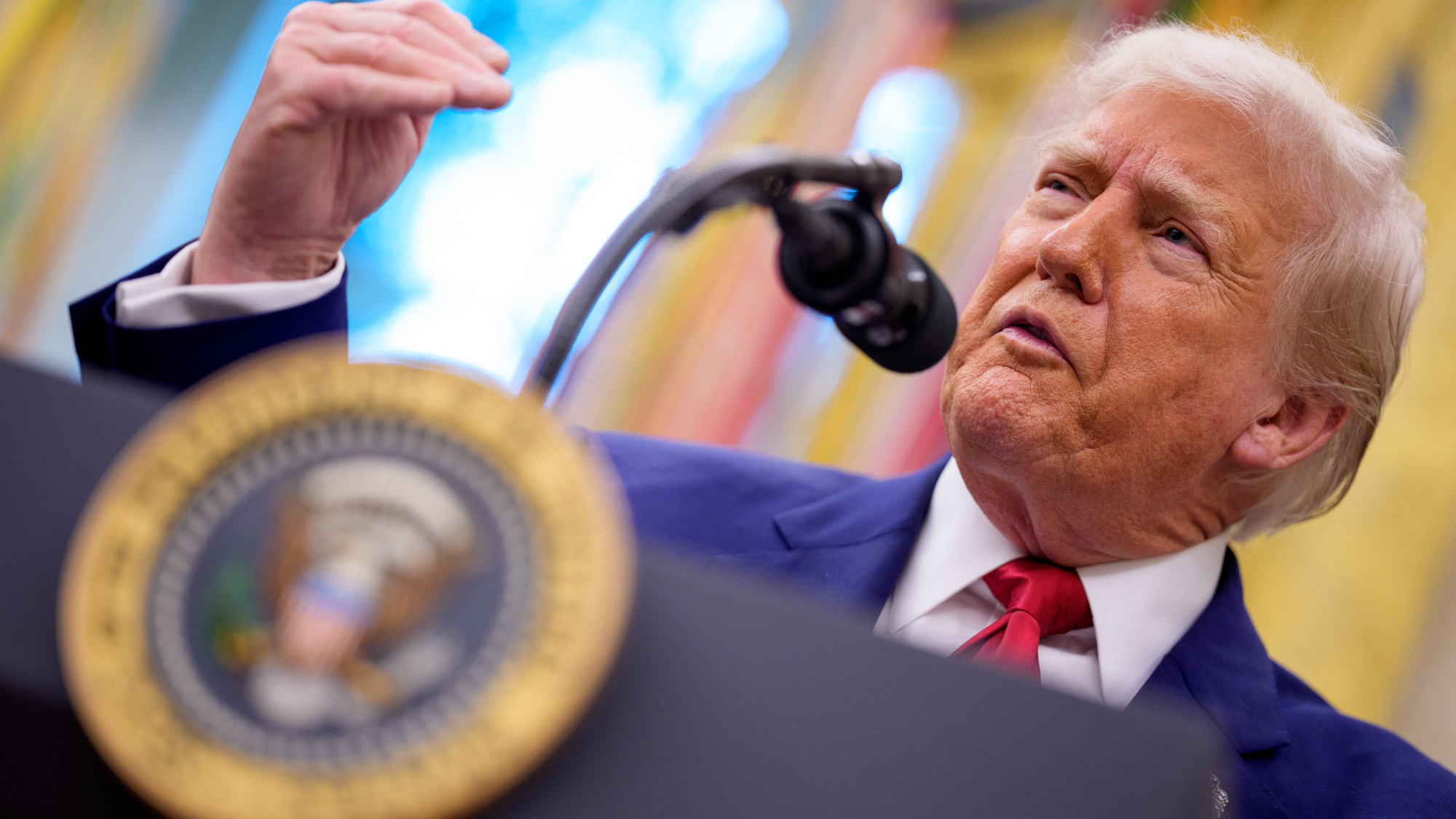Trump tariffs to remain in effect while legal battle plays out, White House promises it will find a way to implement measures regardless
An appeals court says the measures can remain in place for now

5/30 5 am (ET): Following a report on May 29 that a U.S. trade court had ruled Washington's sweeping tariff measures were unlawful, the White House has successfully lodged an appeal with the federal appeals court. According to the ruling, the U.S. government's tariffs can remain in place while the case is ongoing; the next hearing will take place on June 5. A different federal court ruled similarly on a separate set of tariffs. As reported by the BBC, the President's trade adviser, Peter Navarro, told the press that even if the administration loses in court, it would find another way to implement the measures.
The report from May 29 continues below as published.
The U.S. Court of International Trade has ruled that President Trump's sweeping tariffs, levied on nations including China, were unlawful, in a move that could significantly reshape the ongoing trade war and impact the price of technology. The court declared that all of President Trump's measures are "invalid as contrary to law" because the emergency law used to pass them does not give the President unilateral authority to impose such sweeping measures.
In a ruling dated May 28, three judges concluded that the International Emergency Economic Powers Act of 1977 "does not authorize any of the Worldwide, Retaliatory, or Trafficking Tariff Orders" considered by the court in the case. Specifically, they say the Worldwide and Retaliatory Tariff orders imposed by Washington "exceed any authority granted to the President by the IEEPA to regulate importation by means of tariffs."
Regarding Trafficking Tariffs, the court says these fail "because they do not deal with the threats set forth in those orders." Consequently, the court ordered that all the challenged Tariff Orders be vacated and their operation permanently enjoined.
The White House has already filed a notice of appeal, and such decisions can be appealed to the U.S. Court of Appeals for the Federal Circuit in Washington, and of course, the U.S. Supreme Court.
In a statement reported by the BBC, the administration said, "It is not for unelected judges to decide how to properly address a national emergency." Continuing, White House deputy press secretary Kush Desai said, "President Trump pledged to put America First, and the Administration is committed to using every lever of executive power to address this crisis and restore American Greatness."
Considering previous reports, tariffs could increase tech prices by up to 70%. Legal suspension of tariffs levied on countries, including China, could be an enormous relief to suppliers of hardware, including the semiconductor industry, as well as component parts, notably GPUs.
Earlier this month, it was reported that Nvidia has raised prices by 10-15% to combat rising manufacturing costs and tariffs, while TSMC recently called on Washington to drop tariffs on semiconductors made outside the U.S.. Responding to a U.S. Commerce Department's call for public comments, the global silicon leader said "we respectfully request that the Administration avoids imposing tariffs or other restrictive measures on semiconductors made outside of the United States," claiming tariffs raise the cost of endconsumer products and lower demand for such products and the components they contain.
Get Tom's Hardware's best news and in-depth reviews, straight to your inbox.
Follow Tom's Hardware on Google News to get our up-to-date news, analysis, and reviews in your feeds. Make sure to click the Follow button.

Stephen is Tom's Hardware's News Editor with almost a decade of industry experience covering technology, having worked at TechRadar, iMore, and even Apple over the years. He has covered the world of consumer tech from nearly every angle, including supply chain rumors, patents, and litigation, and more. When he's not at work, he loves reading about history and playing video games.
-
-Fran- I know this is good news for people that wants things to stabilise, but I can't help and take the glass half empty on the news: just more flip flopping and market swings which will affect anyone looking at anything electronics in the mid term.Reply
This is becoming the RTX On/Off meme: Tariffs On vs Tariffs Off! The people looking to buy electronics loses anyway.
Regards. -
bit_user Whatever happens with the tariffs, I think we should not expect the de minimis exemption on small packages shipped directly from abroad to be reinstated. I'm not sure exactly what's going to happen there, but it won't be as cheap as it once was.Reply -
bit_user Reply
I don't really see a downside to it, since there was already zero certainty about what the final tariff rates would be. The only major country the US so far has a deal with is the UK, and even that deal isn't finalized.-Fran- said:I know this is good news for people that wants things to stabilise, but I can't help and take the glass half empty on the news: just more flip flopping and market swings which will affect anyone looking at anything electronics in the mid term.
This is becoming the RTX On/Off meme: Tariffs On vs Tariffs Off! The people looking to buy electronics loses anyway.
The only ones really hurt by this development are those planning on ramping up production inside the US. However, with so much uncertainty, I think most who were contemplating such a move were probably waiting on the sidelines, until things settled down and they could be sure they'd get a return on their investment. -
-Fran- Reply
I'm not sure on this, but it is what makes or breaks my train of thought: the retroactiveness of the tariffs in imported goods.bit_user said:I don't really see a downside to it, since there was already zero certainty about what the final tariff rates would be. The only major country the US so far has a deal with is the UK, and even that deal isn't finalized.
The only ones really hurt by this development are those planning on ramping up production inside the US. However, with so much uncertainty, I think most who were contemplating such a move were probably waiting on the sidelines, until things settled down and they could be sure they'd get a return on their investment.
You have to pay and all that when they go in and get tariffed, but once they drop them, do you get your money back? I doubt it.
If there's a chance you won't have to pay tariffs, importers then will, very likely, choose to halt imports (again) until they know for sure and can adjust forecasts accordingly.
Regards. -
bit_user Reply
I've heard stories of container ships waiting out at sea or docking and unloading into warehouses in foreign ports. I think the short-term "reprieve" on the China tariffs was intended to help unwind that logjam.-Fran- said:You have to pay and all that when they go in and get tariffed, but once they drop them, do you get your money back? I doubt it.
Anyway, the people whose goods arrived after the tariffs went into effect and had to pay it will most likely not get that money back. If the ruling stands, maybe they could sue the government, since the tax they paid was ruled unlawful. It's conceivable the government could even setup a mechanism to request a refund, or maybe it'd be handled through the IRS.
However, the full impact of the tariffs has yet to be felt. That's primarily what's at stake and what I mostly care about.
The court has already ruled. The government should immediately stop collecting them, unless a higher court issues a stay. However, I'd guess the ruling will be allowed to stand, until the appeal is heard.-Fran- said:If there's a chance you won't have to pay tariffs, importers then will, very likely, choose to halt imports (again) until they know for sure and can adjust forecasts accordingly. -
-Fran- Reply
And that is the thing. Markets not necessarily react to "fact", but instead "impression" of rulings and announcements. Even if they obey (which said they'll appeal), it's not guaranteed the ruling will hold. People importing won't risk losing a boatload of money on this sort of gamble. Which is odd to say out of the economy of the USA: "a gamble". Oof.bit_user said:The court has already ruled. The government should immediately stop collecting them, unless a higher court issues a stay. However, I'd guess the ruling will be allowed to stand, until the appeal is heard.
As I said: half empty glass for me.
Regards. -
bit_user Reply
Yeah, until a higher court decides on whether to issue a stay, not much will probably change. If it is allowed to stand, then I think a court date would be set for when the appeal would be heard, and that might prompt a rush to get lots of merchandise on shore and through customs.-Fran- said:People importing won't risk losing a boatload of money on this sort of gamble. -
Pierce2623 Reply
The “market” reacting to impressions rather than facts, is only customers. The companies have to know the facts and abide by them.-Fran- said:And that is the thing. Markets not necessarily react to "fact", but instead "impression" of rulings and announcements. Even if they obey (which said they'll appeal), it's not guaranteed the ruling will hold. People importing won't risk losing a boatload of money on this sort of gamble. Which is odd to say out of the economy of the USA: "a gamble". Oof.
As I said: half empty glass for me.
Regards. -
Misgar Reply
It's a complicated subject but importers might be able to claim back tariffs under Section 301. I think importers can leave goods at the dockyard or in bonded warehouses in the US without paying tariffs.-Fran- said:You have to pay and all that when they go in and get tariffed, but once they drop them, do you get your money back? I doubt it.
https://usacustomsclearance.com/process/section-301-tariff-refund/
Not surprising when you consider that for the last 9 years, the US exported more goods to the UK than the value of goods imported back into the US from the UK. The exact opposite of many other nations.bit_user said:The only major country the US so far has a deal with is the UK, and even that deal isn't finalized.
https://www.census.gov/foreign-trade/balance/c4120.html